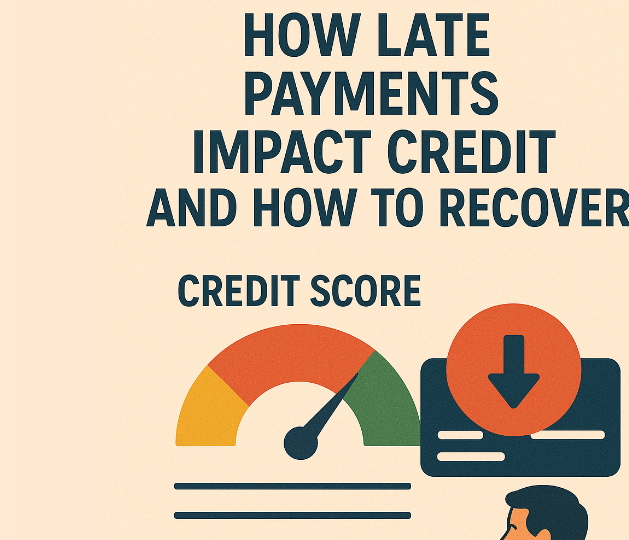How Late Payments Impact Your Credit (and How to Recover)
Missing a payment happens to the best of us. Maybe you forgot the due date, ran short on cash, or simply overlooked the reminder. But when it comes to your credit, late payments can have serious consequences especially if they’re reported to the credit bureaus.
Let’s break down how late payments affect your credit score, and more importantly, what you can do to recover.
How Late Payments Are Reported
-
1–29 Days Late: Your lender may charge a late fee, but most won’t report the payment to the credit bureaus until it’s 30 days past due.
-
30 Days Late: At this point, the missed payment usually appears on your credit report. Your score will likely drop.
-
60–90+ Days Late: Each additional missed payment gets reported as well, causing more damage. Accounts could also be sent to collections.
👉 The later the payment, the bigger the hit to your score.
How Late Payments Impact Your Credit Score
1. Payment History Takes a Hit
Payment history makes up 35% of your FICO score—the largest factor. Even one late payment can cause a significant drop (often 60–110 points), especially if you previously had excellent credit.
2. Stays on Your Report for 7 Years
A late payment doesn’t disappear quickly. It can remain on your credit report for up to 7 years, although the impact lessens over time if you maintain good credit habits.
3. Future Borrowing Becomes Harder
Lenders see late payments as a sign of risk. This can lead to higher interest rates or denied applications for loans, credit cards, and even mortgages.
How to Recover from a Late Payment
✅ 1. Pay As Soon As Possible
The faster you catch up, the better. If you’re under 30 days late, you may avoid a credit report ding altogether.
✅ 2. Contact Your Lender
Sometimes lenders will remove a late payment from your record if you’ve otherwise been a good customer. This is called a goodwill adjustment—it’s worth asking!
✅ 3. Set Up Auto-Pay or Reminders
To prevent future late payments, set up automatic payments, or at least calendar alerts, so you never miss a due date.
✅ 4. Focus on Positive Credit Behavior
Over time, consistent on-time payments will outweigh the negative mark. Keeping balances low and not missing any more payments are key to rebuilding your score.
✅ 5. Consider a Credit Repair Strategy
If your report has multiple late payments, you might explore options like:
-
Disputing errors (if the late payment was reported incorrectly).
-
Credit counseling services for structured repayment plans.
Final Thoughts
A late payment isn’t the end of the world—but it can feel like it. The key is to act quickly, take responsibility, and build new habits that keep your credit on track. While the mark may linger for years, your actions moving forward will determine how much it matters.


